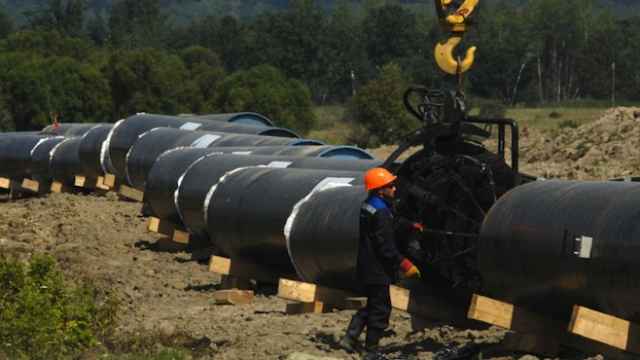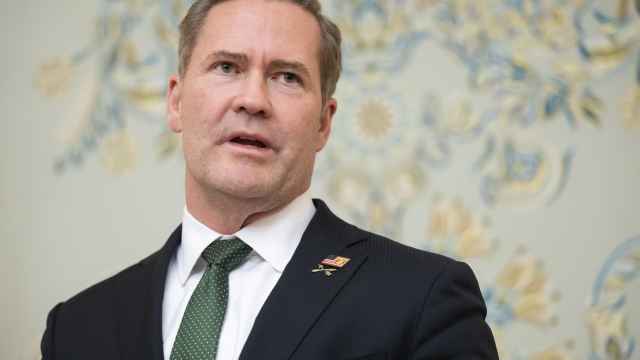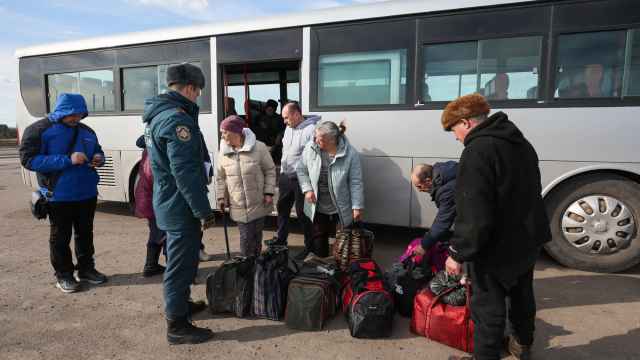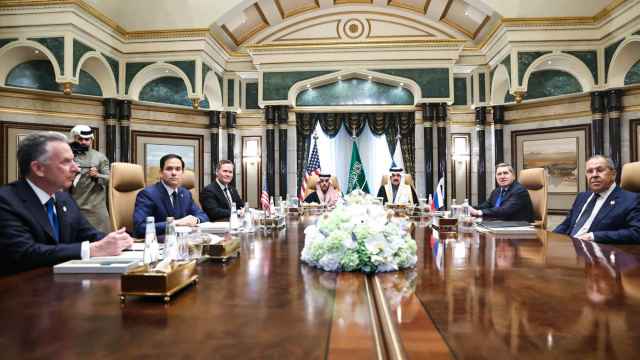ANKARA — Turkey inaugurated a $10 billion project to pipe Azeri gas to Western markets on Tuesday, forging ahead with a plan that could help Europe reduce its dependence on Russian energy even as Moscow touts its own alternative.
The Trans-Anatolian gas pipeline (TANAP) aims to carry 16 billion cubic meters of gas a year by mid-2018 from Azerbaijan's Shah Deniz II field in the Caspian Sea, one of the world's largest gas fields developed by a BP-led consortium.
The 1,850 km (1,150 mile) pipeline will stretch from Turkey's border with Georgia to Greece and is key to Turkey's ambition to cut its own dependence on Russian gas.
Ankara raised its stake in the project to 30 percent last year. Azeri state-oil firm SOCAR holds 58 percent, while BP has the remaining 12 percent.
"We plan to establish Turkey as the energy distribution hub of the region," President Tayyip Erdogan said at a ground breaking ceremony in the northeastern city of Kars.
Facing objections from the EU, Russia abandoned its $40 billion South Stream project through which it aimed to deliver gas to Europe while bypassing Ukraine. Moscow surprised the block by proposing a new undersea pipeline, dubbed "Turkish Stream".
Ankara's response to the project, which envisages piping gas to a hub on the Turkish-Greek border, has been lukewarm. Energy officials have said TANAP remains their priority.
"TANAP has a special importance because of its route and its goal and is not an alternative project to others and there is not an alternative to it," Erdogan said.
Initially, Turkey will buy the first 6 bcm per year of gas from TANAP. A further 10 bcm will be delivered to Europe once it is connected to the Trans Adriatic Pipeline (TAP) by 2020. By 2023, TANAP's capacity will rise to 23 bcm per year and then to 31 bcm by 2026, according to project executives.
Caught off guard by Russia's surprise decision to ditch South Stream and its proposal to work with Turkey to build an alternative route, the European Union has repeatedly urged Moscow not to exclude it from the plans.
"When we speak about some big supplies for European customers, you cannot adopt such a decision without talking to them, without talking to the EU and without talking to the European Commission," Maros Sefcovic, the European Commission's vice president in charge of energy policy said at a press briefing in Ankara on Monday evening.
A Message from The Moscow Times:
Dear readers,
We are facing unprecedented challenges. Russia's Prosecutor General's Office has designated The Moscow Times as an "undesirable" organization, criminalizing our work and putting our staff at risk of prosecution. This follows our earlier unjust labeling as a "foreign agent."
These actions are direct attempts to silence independent journalism in Russia. The authorities claim our work "discredits the decisions of the Russian leadership." We see things differently: we strive to provide accurate, unbiased reporting on Russia.
We, the journalists of The Moscow Times, refuse to be silenced. But to continue our work, we need your help.
Your support, no matter how small, makes a world of difference. If you can, please support us monthly starting from just $2. It's quick to set up, and every contribution makes a significant impact.
By supporting The Moscow Times, you're defending open, independent journalism in the face of repression. Thank you for standing with us.
Remind me later.





